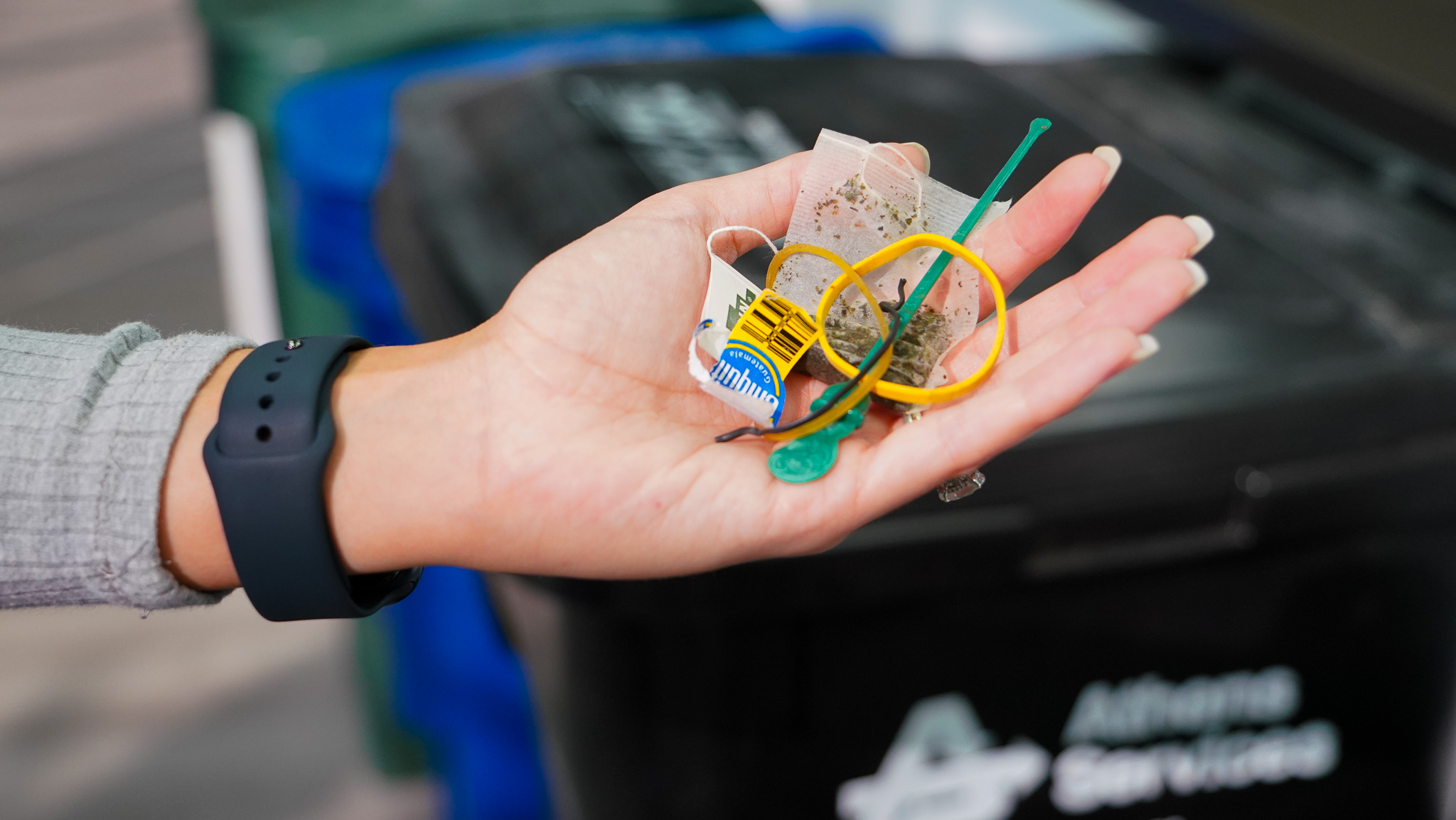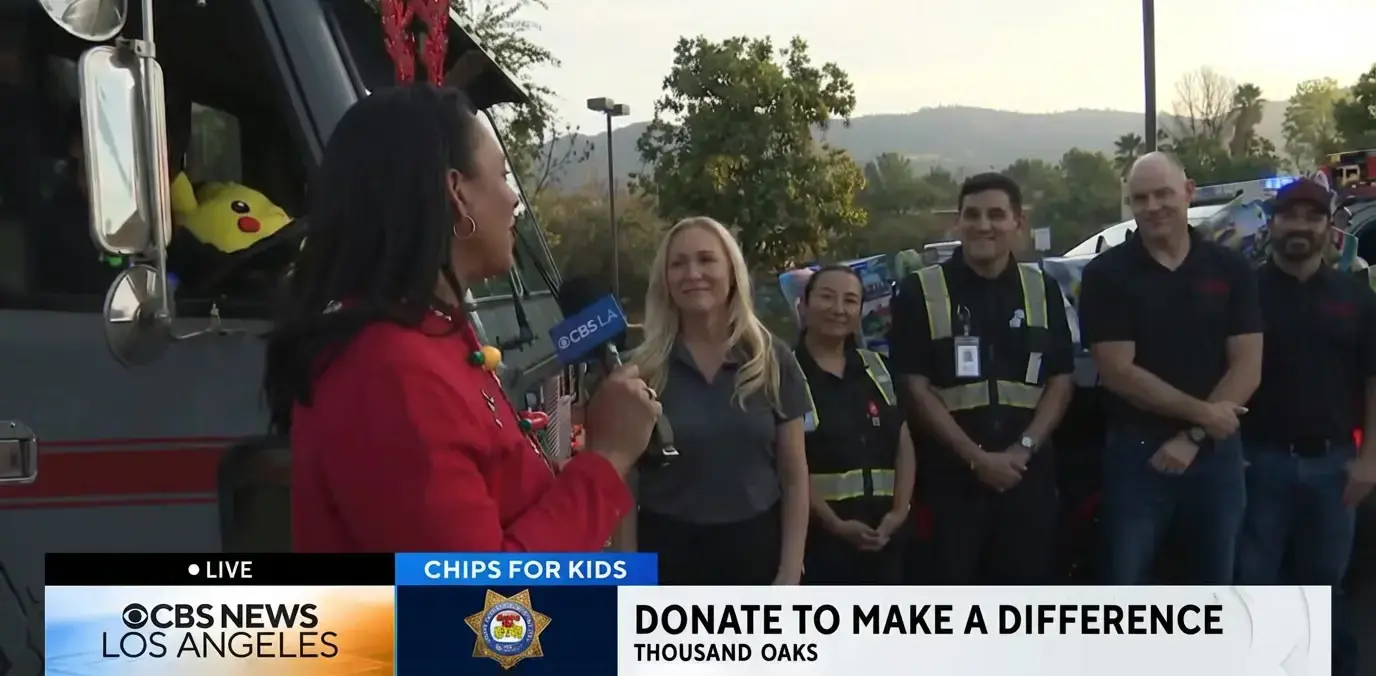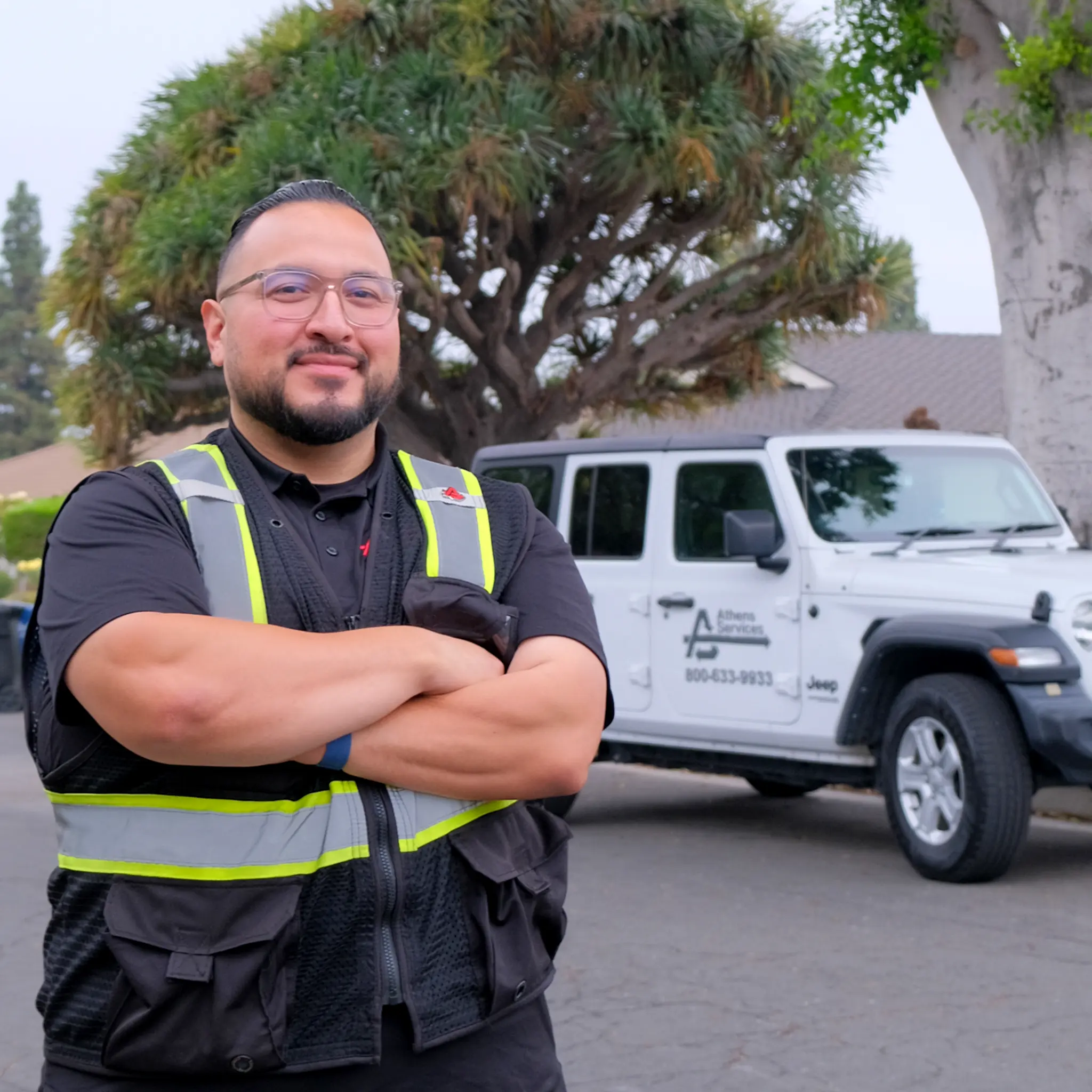AVOID COMMON CONTAMINANTS
Twist ties, bread clips, rubber bands, and produce stickers are among the most common organics contaminants. These items are made from plastic and need to be removed prior to disposing your food scraps. In addition, most tea bags and gum contain some degree of plastic and are also considered contaminants. For a deeper dive on common contaminants, check out Athens’ Recycling Organics Waste at Home video.
WATCH THE LABELS
Spot greenwashing. Under California law, manufacturers cannot label any bioplastic product as “biodegradable,” “oxo-degradable,” “environmentally friendly,” “beneficial to landfill,” or any other form of these terms to prevent misleading consumers from untrue environmental marketing claims. Bioplastics, a foodware item that looks like plastic, but is made from plants or other natural materials, are not acceptable for composting by Athens. This is due to the required time it takes to process them in full and compost facility certifications that do not allow inorganic material in our compost. Dispose of these items in the trash container.
KEEP CONTENTS LOOSE
When it comes to disposing of organics waste into your outdoor green container, it is preferred to keep all contents loose. This helps team members at Athens’ composting facility easily identify and sort potential contaminants. If you prefer to line your food scraps container, consider using a paper or loosely-tied clear/translucent plastic bag. To learn more about Athens’ organics sorting process, check out our How Organics Waste is Recycled video.
By following these strategies, you will be on your way to becoming an organics sorting expert. For more tips on managing and sorting your organics waste, visit AthensServices.com/Food.

 Customer Service
Customer Service Bulky Pickup
Bulky Pickup Request Services
Request Services Pay Bill
Pay Bill



